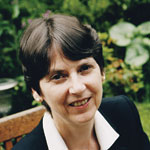UBC Reports | Vol. 52 | No. 8 | Aug. 3, 2006
Action + Service = Learning
By Margo Fryer
 What universities and community settings have in common is that they are both places where students learn to care about and respond effectively to the critical social, ecological, and economic issues facing the world. What universities and community settings have in common is that they are both places where students learn to care about and respond effectively to the critical social, ecological, and economic issues facing the world.
Would you agree with this statement? At this point in time, many people would not. Some people see universities as too isolated from real-world problems. Some people view communities as the site of issues that must be addressed and tend to ignore the expertise that is available to be shared. But over the next five to ten years, this is going to change.
The problems facing society today — such as the over-consumption of limited natural resources or the social marginalization of people who are perceived as different — require big-picture, creative thinking that is grounded in practical realities, not just theory.
But thinking is not enough. We also need people to take action. Community Service-Learning — the integration of volunteer service in the community with classroom learning — can engage students, as well as faculty, staff, alumni and community members, in the kinds of thinking, action, and reflection that will be the key to developing effective responses to the critical issues we face.
Since 1999, more than 3,000 UBC students have demonstrated their enthusiasm for real-life learning by participating in programs such as the Learning Exchange Trek Program and UBC’s Reading Week community service projects. The university’s Trek 2010 strategic plan has reflected this enthusiasm by making the advancement of Community Service Learning a priority.
Over the next five to ten years, UBC will be developing new Community Service Learning initiatives that will integrate students’ volunteer work with traditional, discipline-specific courses as well as with new, trans-disciplinary courses that focus on themes such as sustainability and global citizenship. Students will be engaging in a diverse range of projects, from enriching the learning environment in inner city schools in Vancouver’s eastside to working with villages in developing countries to advance indigenous economic strategies. Students will be able to work as part of a team doing short-term projects or independently on long-term, in-depth projects that integrate research, service, and reflection.
UBC’s increasing emphasis on this kind of course-based experiential learning will mean that more and more students will become powerful agents of change in our communities. Forget the image of students being tucked away reading in an “ivory tower.” UBC students are going to be applying their knowledge, talent, and skills in settings where they can make a difference and where they can learn from others who are living and working in the thick of society’s most pressing issues. Students will be learning in the messy, confusing, and troubled — but exciting — “real world.”
Margo Fryer is Director of the UBC Learning Exchange, an Assistant Professor in the School of Community and Regional Planning and President of the Canadian Association for Community Service-Learning |
 What universities and community settings have in common is that they are both places where students learn to care about and respond effectively to the critical social, ecological, and economic issues facing the world.
What universities and community settings have in common is that they are both places where students learn to care about and respond effectively to the critical social, ecological, and economic issues facing the world.